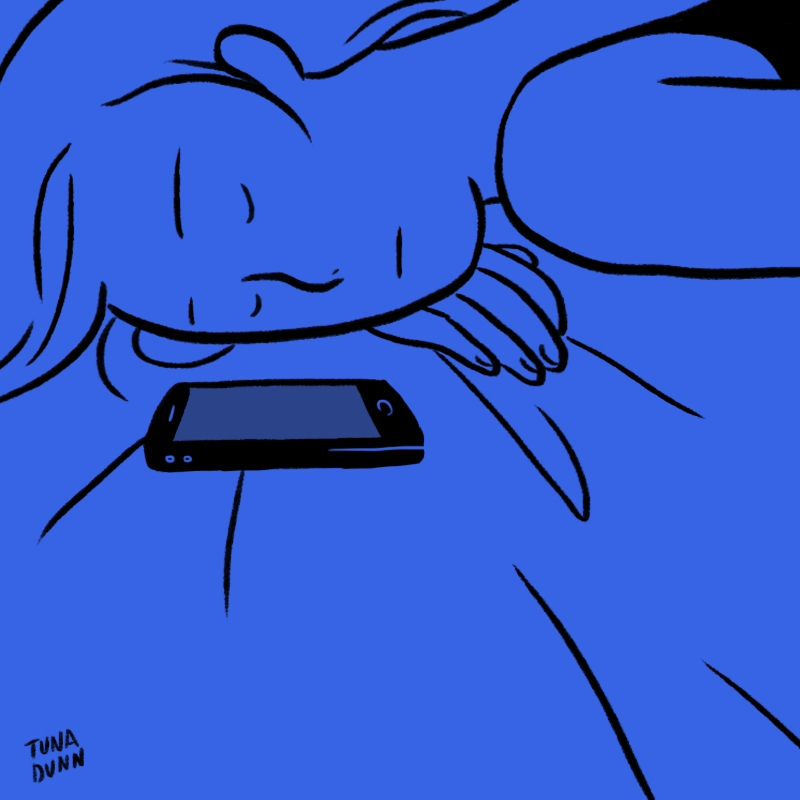
Smartphones and tablets aren't going away anytime soon and they're affecting our parenting.
A recent study found that people with children spend an average of 9 hours and 22 minutes per day in front of a screen. Even though they spent a huge chunk of their day with a device, 78% of parents said they are modeling good media habits for their kids.
It can be hard to admit having a technology addiction. A few minutes scrolling here and there doesn't seem too bad. But those minutes add up, leading to a lack of productivity or other negative effects. More importantly, the time spent with a screen in front of our kids could be time spent with our kids. Here are 7 reasons to unplug and 3 tips for taking a time-out from technology.

1. Facebook is making you feel bad about yourself.
Here's the gist: Facebook isn't making EVERYONE feel bad, but it is making some of us feel awful. The reason? Envy. People tend to share a skewed version of themselves on the Internet--flattering, positive updates instead of negative ones. So if your life feels like it isn't measuring up to your online circle, remember that you're only seeing a small slice of their life...or take a long-term break from your Facebook account...or delete it all entirely.

2. FOMO
If you have a teenager, we likely don't have to tell you that FOMO stands for 'Fear of Missing Out'. The acronym is catchy, sure, but what it's really describing is a phenomena of heavy social media users craving information and access to unique experiences. We are trying to pay attention to EVERYTHING, and in exchange, we are missing out on the present.

3. Solitude
Speaking of the present, technology has eroded our solitary time. While scrolling through your news feed may feel like relaxation time, your brain thinks it is anything but. If you're looking for true rest, it is better to take a walk without any of your devices than spend a half an hour cruising through Instagram.

5. Creation > Consumption
It's lovely to look at beautiful images on social media. But the truth is that consuming others' work through a screen is a passive act, and it is taking up valuable time you could be using creating your own masterpieces. This is particuarly poignant for young tech users. If you have a child or teenager, ask them what they're attracted to in the social media accounts they follow, and if they'd like to pursue any of those activities themselves. It's good to appreciate creators on the internet, but it's better to be creating ourselves.

6. Human connection
Part of the beauty of cell phones and the internet, and why we're so hooked on them, is their ability to connect us to the people we love the most. But communication is only 7% verbal and 93% non-verbal. Non-verbal communication is body language (55%) and tone of voice (38%). Texting and social media skip over the non-verbal communication, which is great for speed and long-distance, but takes a toll on delivering the right message or tone.

7. "The first hour of the morning is the rudder of the day." - Henry Ward Beecher
You're not the only one who reaches for their phone when they first wake up, but here's why you should stop: the blue light that cell phones cast are destructive to a healthy night of sleep. Artificial light prevents our bodies from producing the chemicals that make us tired, and instead leaves us feeling more awake. Interacting with our phones right before bed or immediately upon waking unsettle our body's natural rhythmns and may be the culprit of your groggy mood.

So, what now? Take a digital time-out.
1. Leave the phone at home and go out to dinner or for a walk.
2. Schedule out time to put your phone on 'Do Not Disturb' mode for an hour. Bonus points if it's the first or last hour of the day.
3. Choose an activity you may usually do on a phone or computer and do it without technology. Examples include reading a book(instead of your Kindle), listening to live music or an old tape you forgot about(instead of your Spotify), and writing letters to friends and family(instead of a text).
More resources on managing technology in your home:
Finding balance + harmony with technology - Clinical psychologist & author, Shefali Tsabary, PhD
How to limit TV and technology in your home - Educational specialist, Carolyn McWilliams, MA
Technology's effect on your child's communication skills - Clinical psychologist, Chris Fulton, PhD



























